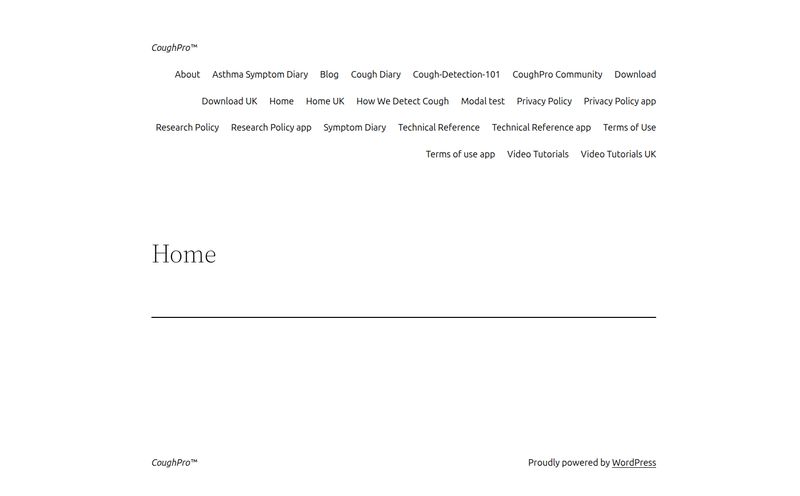We’ve all been there. You launch a new community Slack, you invite everyone, the first few days are a flurry of introductions and GIF parties. And then… crickets. The dreaded tumbleweed blows through your #general channel. Someone asks a question into the void, and the silence is so loud you can feel it. As a community manager, it’s a special kind of pain.
We try everything, don’t we? Forced weekly prompts, tagging people we think might know the answer, creating more and more channels hoping one will stick. It’s exhausting. So when a tool comes along promising to automate the very human act of connection, my ears perk up. But my skepticism meter goes way up too.
The latest tool to cross my desk is called Britepeer. It bills itself as a knowledge-sharing Slackbot. My first thought? “Oh great, another bot.” But the more I looked into it, the more I realised it’s trying to solve a very specific, very real problem. The long and short of it is, it tries to be the friendly, all-knowing party host who introduces the person who needs help with their taxes to the accountant in the corner.
So, What is Britepeer, Really?
Calling Britepeer just a “Slackbot” is a bit like calling a Swiss Army knife just a “knife.” Sure, it lives in Slack, but its job is much more specific. It's designed to be a knowledge matchmaker. An automated connector. Imagine a new team member in a massive company needs help with a specific Python library. Instead of shouting into the #dev-random channel and hoping for the best, they can ask Britepeer. The bot then scans its database of user skills and expertise and privately connects them with someone who can actually help.
It’s a simple concept, but the implications are pretty big. It breaks down departmental silos in big companies and transforms a passive community into an active resource. It turns your entire community into a living, breathing, searchable knowledge base. That's the dream, anyway.

Visit Britepeer
How Britepeer Aims to Revive Your Community
So how does this digital cupid for questions actually work? It’s not just about one-off introductions. Britepeer seems to be built on a few core ideas that, together, create a cycle of engagement.
Automated Matchmaking: The End of the '@here' Ping
This is its bread and butter. The core function is connecting a member with a question to a member with the answer. This is huge. It saves the question-asker from feeling embarrassed or ignored. It saves the experts from being bombarded with irrelevant pings. And it saves you, the community manager, from having to manually play matchmaker 24/7. The tool automates the networking, making the community itself the primary source of value.
The All-Seeing Eye: Your Engagement Dashboard
Okay, here’s where the real SEO and traffic-gen nerd in me gets excited. Britepeer doesn’t just make connections; it tracks them. It comes with a data-driven dashboard that shows you the real pulse of your community. You can see which topics are generating the most questions, who your most active experts are, and how overall engagement is trending over time. This is gold. This is the stuff you take to your boss to prove the community isn't just a 'nice-to-have' but a critical business asset. Showing hard numbers on knowledge sharing and problem-solving? That’s how you secure your budget for next year.
Putting Your Rockstars on a Pedestal
Let’s face it, people love a little recognition. Britepeer helps you identify the subject matter experts in your community—the people who are consistently helping others. By highlighting their expertise, you’re not just giving them a virtual pat on the back; you’re building social currency. It encourages more people to participate and share what they know, knowing their contributions are seen and valued. It can be a powerful motivator for turning lurkers into leaders.
My Honest Take: The Good, The Bad, and The Slack-Dependent
No tool is a silver bullet, and I've seen enough of them to know you have to look past the shiny marketing page. In my experience, the reality of a tool is always found in its limitations.
The upsides are clear. It can genuinely increase engagement by making it easier and less intimidating to ask for help. It provides a massive value-add for members, especially in paid communities where they expect a return on their investment. And the automation of admin tasks and the data insights are a godsend for any busy community professional. Seriously, getting some of that time back is priceless.
But lets talk about the downsides. First, and most obviously, it’s a Slack-only tool. If your community lives on Discord, Microsoft Teams, or a forum, you're out of luck. This is a big hurdle for a lot of organizations.
Second, and this is the most important caveat, Britepeer is only as good as your community's willingness to participate. It’s a classic chicken-and-egg problem. The tool needs members to populate their skills and be willing to help for it to work. If you have a fundamentally apathetic or non-collaborative culture, Britepeer won't magically fix it. It might just become another bot everyone ignores. You still have to do the hard work of building a culture of helping first.
Finally, there's the potential for bad matches if topic tagging is off. If people list vague or inaccurate skills, the matchmaking won’t be effective. Garbage in, garbage out, as they say.
What's the Damage? A Look at Britepeer's Pricing
Here’s the million-dollar question. Or, hopefully, the much-less-than-a-million-dollar question. Currently, Britepeer doesn't have public pricing on its website. This is pretty standard for B2B SaaS tools that target enterprises, as pricing can often depend on the size of the team, specific needs, and support levels.
While I don’t have a number for you, I can speculate based on similar tools in the market. We'll likely see a tiered structure. Maybe a free or low-cost plan for very small communities to get them hooked, a mid-tier plan for professional communities, and an enterprise plan with all the bells, whistles, and SSO integrations for large corporations. I'd expect pricing to be on a per-user, per-month basis for the paid tiers. Your best bet is to reach out to them directly for a demo and a custom quote.
Is Britepeer Actually Right For You?
So, should you rush to install Britepeer? It depends.
Britepeer is probably a great fit if:
- You manage a large enterprise Slack where knowledge is trapped in silos.
- You run a paid membership community and need to provide tangible, consistent value.
- You have an existing, generally helpful community and you want to scale up those helpful interactions.
- You’re a data-driven manager who needs to prove the ROI of your community initiatives.
You might want to hold off if:
- Your community isn't on Slack.
- Your community is very small, new, or still struggling with basic engagement and trust. Fix the culture first.
- You don't have the buy-in from members to get them to fill out their skills and participate.
The long and short of it is this: Britepeer looks like a fantastic facilitator. It's not a magic wand. It can’t create a collaborative culture from scratch, but it can pour gasoline on a flickering flame of existing goodwill.
Frequently Asked Questions about Britepeer
What exactly is Britepeer?
Britepeer is a Slackbot designed to facilitate knowledge sharing. It automatically connects users who have questions on specific topics with other users in the community who have the relevant skills and expertise to answer them.
Does Britepeer work outside of Slack?
No, currently Britepeer is an integration designed specifically for the Slack platform. It does not work with other communication tools like Microsoft Teams or Discord.
How does Britepeer identify experts?
It works based on self-reported skills and topics that members add to their profiles within the system. The tool's effectiveness relies on users accurately tagging their areas of expertise. It also learns from successful interactions over time.
Is Britepeer difficult to set up?
While specifics depend on the platform, most modern Slackbot integrations are designed for a relatively straightforward setup process, often requiring just a few clicks to authorize the bot and add it to your workspace. You'd then need to onboard your members to the tool.
What kind of data does the Britepeer dashboard show?
The dashboard provides metrics on community health and engagement. This typically includes things like the number of questions asked and answered, the most popular topics, your most active experts, and overall trends in community interaction.
How can I get Britepeer for my community?
The best way is to visit their official website. You can likely request a demo or speak with their sales team to see if the tool is a good fit and get information on pricing and implementation.
A Final Thought
Tools that promise to boost engagement are a dime a dozen. Most of them are just noise. Britepeer, however, feels different. It's focused on solving one of the most fundamental challenges of any community or large organization: connecting the person with a problem to the person with a solution. It's not about gamification or cheap tricks; its about fostering real, valuable connections.
It won’t save a dead community on its own. Nothing can. But for an active, healthy community that just needs a better system for sharing its collective brainpower? Britepeer might just be the helpful, automated librarian you've been looking for.
Reference and Sources
- For information on community engagement strategies, CMX Hub is an excellent resource: The 5 Best Ways to Increase Community Engagement.
- To learn more about the tool discussed, visit the official website (I'm assuming it's Britepeer.com, but please verify).



